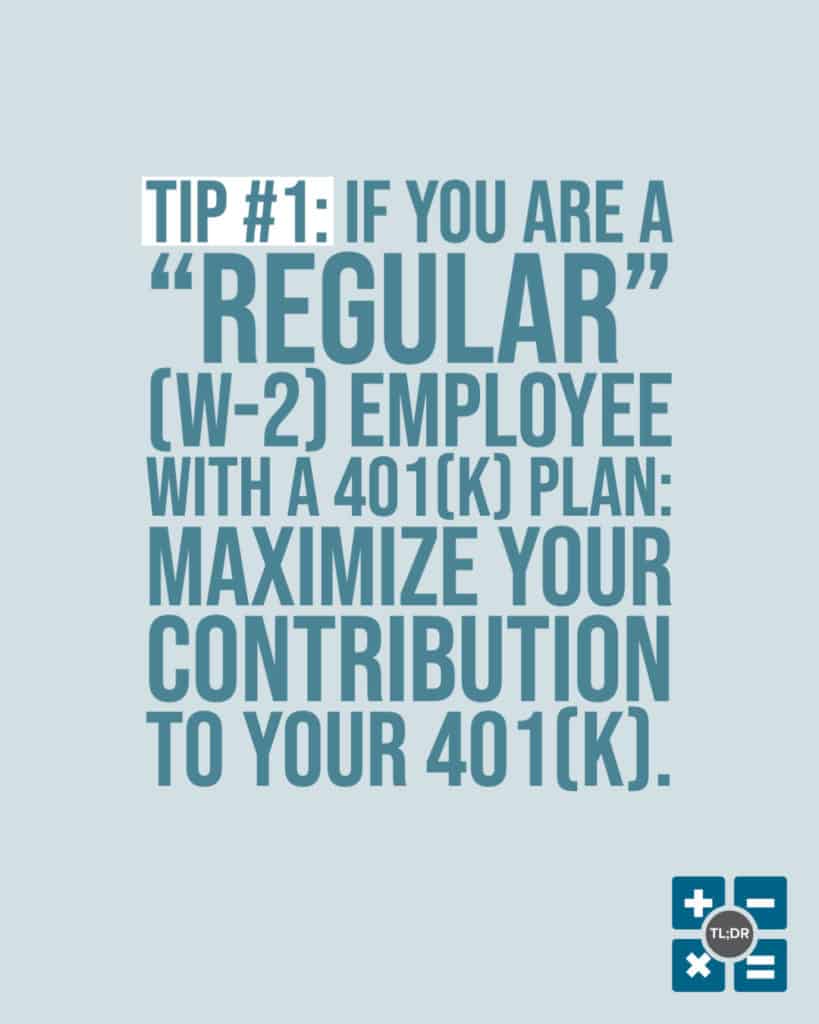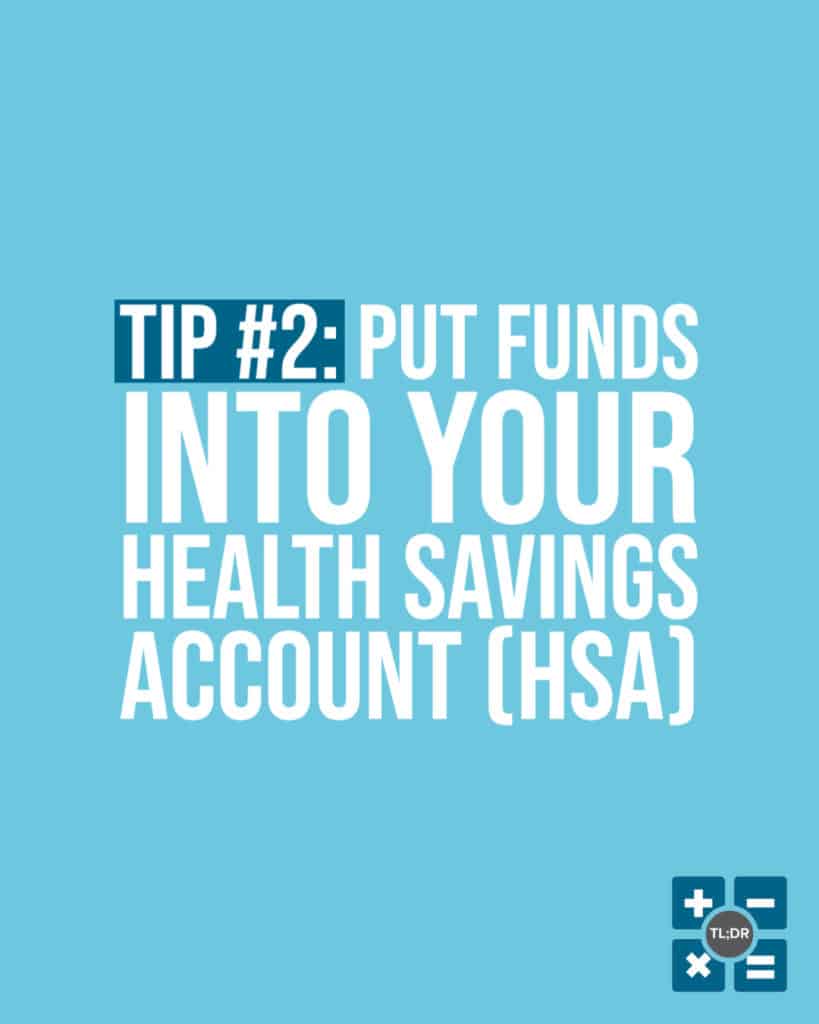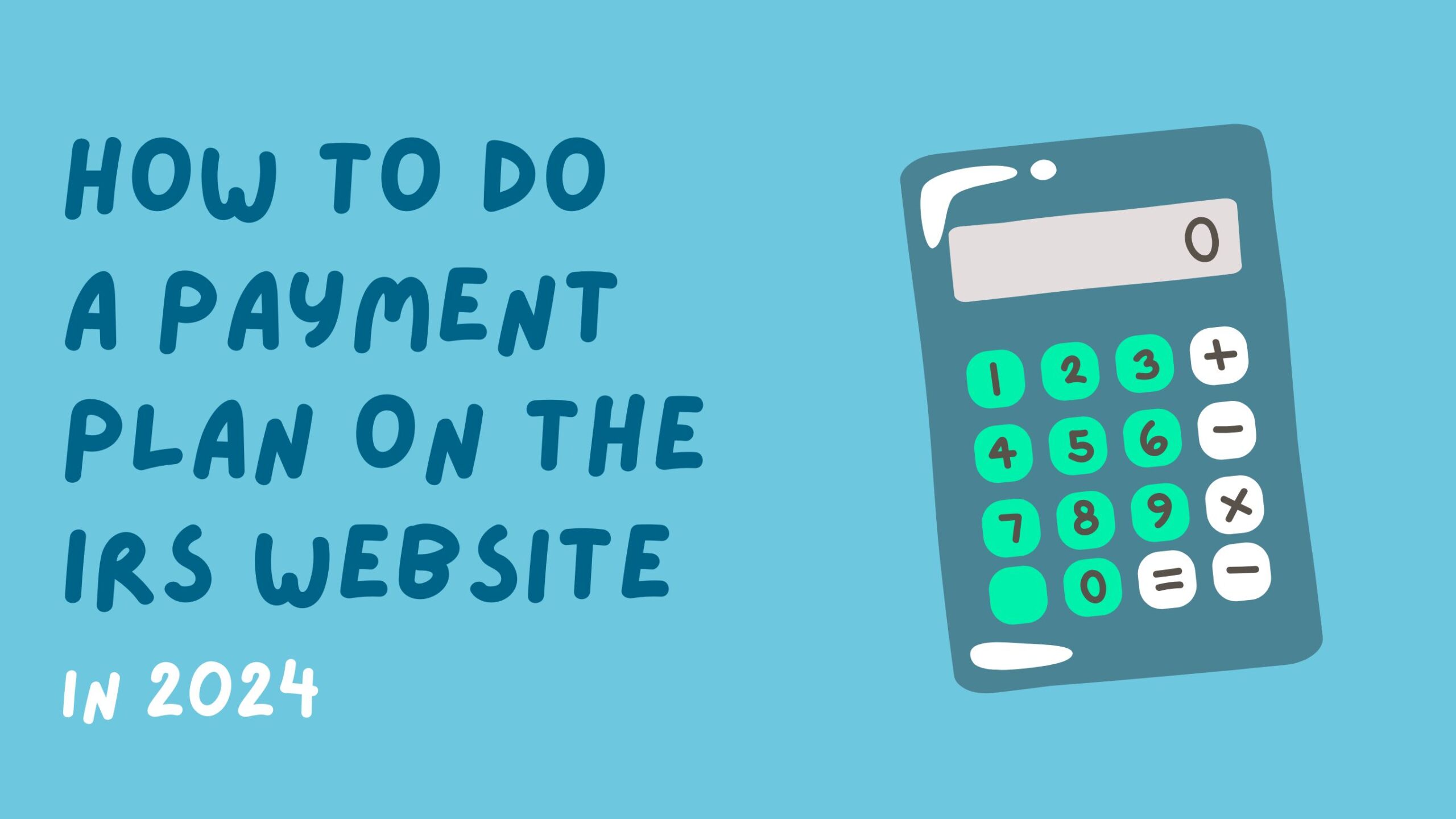It’s already almost the end of the year again! Can you believe it? We hardly can; it feels like the COVID quarantine lifestyle has melted the entire year into one really long week.
Because time slips by so fast, it’s a great idea to stop and take a breath right now and review some ways that you can reduce your tax burden for next April (or earlier for you go-getters out there). Below are three quick and relatively simple ways to keep a few of the IRS’s fingers out of your wallet.
Remember, tax avoidance is legal, tax evasion is not — the following are perfectly legal tips for avoiding or deferring some taxes that you’d otherwise have to pay. These tips are not just legal: they’re actively encouraged. Lawmakers want people to save for retirement and health events and donate to important causes.
Contribute to Your Retirement Account
Contributing to retirement is like paying Future You. The only thing is, you don’t know if Future You is okay or if they’re hard up for cash. Why risk it? Maximize your retirement contributions so that Future You will be thanking Current You!

If you are a “regular” (W-2) employee with a 401(k) plan: Maximize your contribution to your 401(k). If your employer has a matching contribution that you’re not taking advantage of, you’re basically throwing away free money. Beyond that, we recommend that you sock away a total of 10% of your annual income into your 401(k), which is probably more than your employer will match. The maximum 401(k) contribution this year is $19,500.
If you are a “regular” (W-2) employee but your employer hasn’t set up a 401(k) plan: You still have options. If your employer has a different kind of retirement plan, maximize that one instead! Otherwise, you have the option to contribute to an IRA. For most employees we recommend a traditional IRA unless you’re in a very low tax bracket. You can contribute up to $6,000 to an IRA this year. Note that the IRA deduction is only available if you are not on an employer’s retirement plan.
If you are a small business owner or freelancer: Good news, you still have options! Retirement accounts are available for self-employed business owners, freelancers, and contractors.
Put Funds Into Your Health Savings Account (HSA)

If you are an employee, your employer might have a Health Savings Account set up. This is a good way to “self-insure” against any medical event that might affect Future You or Future You’s Loved Ones. Note that if your employer contributes to your HSA, your employer gets the deduction — you can only claim a deduction on contributions that you make.
Please note that the Health Savings Account (HSA) is not the same as a Flex Spending Account (FSA). It’s important to pay particular attention to the S’s here: Savings vs. Spending.
An FSA is all about spending your funds in the same year that you contribute them, and there’s even an online store where you can spend your leftover FSA contributions. Only up to $500 in an FSA will roll over to the next year and the rest is lost to you forever, so we recommend caution. If you regularly pay for expensive (eligible) pharmaceuticals then it still might make sense to max your FSA.
Donate to Charity
We understand that not everyone is in a comfortable enough position to be able to donate to charity. But, we also recognize that for those who are able, it’s an act of kindness to contribute your hard-earned money towards a worthy cause. In a more practical sense, this can also reduce your tax burden to the IRS.

Think of it this way: Your tax dollars are going to a “basket” of causes, some of which you may agree with and some you may not. By donating to a charity, you have a greater opportunity to choose where your money goes, especially if you carefully vet the charity ahead of time.
There are other important items of note here. First, the actual contribution must be made before the end of the year on 12/31/2020! Second, the Tax Cuts and Jobs Act (TCJA), also known as the Trump Tax Cuts, significantly raised the standard deduction. The current Standard Deduction is $12,400 for Single and $24,800 for Married Filing Jointly (MFJ). Practically speaking, only your deductions that exceed the Standard Deduction “count.” Thus, many taxpayers will not be able to afford to donate a large enough amount to get a tax deduction for it.
Still, you may feel that donating to charity is a worthwhile endeavor regardless of tax effects.
Bonus: Life Events
All of the above items will affect your 2020 taxes, but there are some major events that could affect your taxes for years or even the rest of your life! We’ve previously discussed life events that impact your taxes, but we’ll give you a quick overview below.
Life events that will certainly (or almost certainly) change your taxes:
- Change in marital status
- Buying or selling a house
- Having or adopting a child, or otherwise gaining a dependent
- Moving to a different state or country
- Starting or closing a business
TL;DR: It’s already almost the end of the year! Don’t panic, just take a deep breath and consider some ways to save on taxes next year. You can contribute your own money towards your retirement account, your HSA, or a charitable cause in order to reduce your tax burden. Note that while the first two are sure ways to reduce your taxes, charitable contributions will only affect your taxes if your itemized deductions exceed the standard deduction for your filing status. If you need extra help, you can get in touch with us any time over on the Let’s Chat Page.






